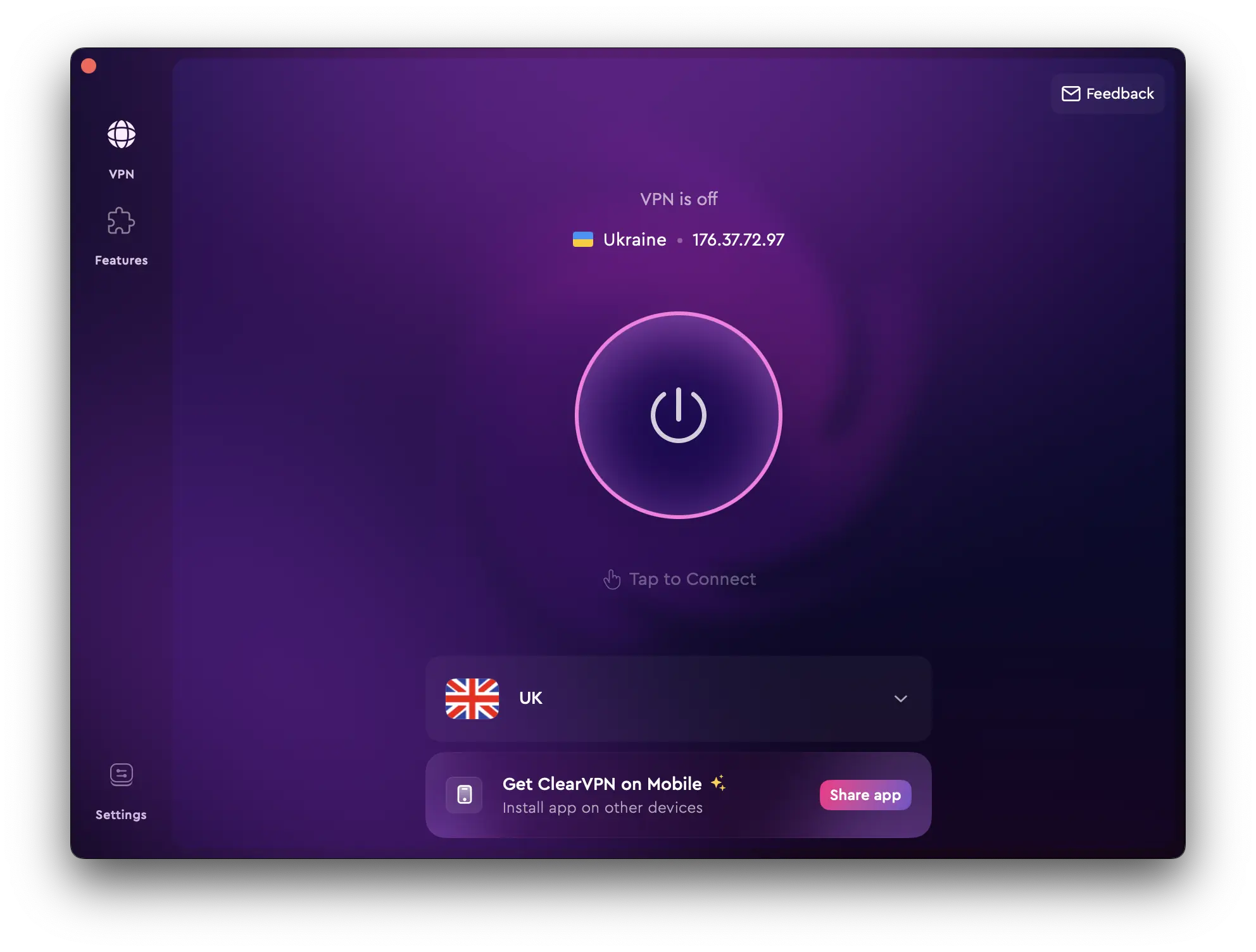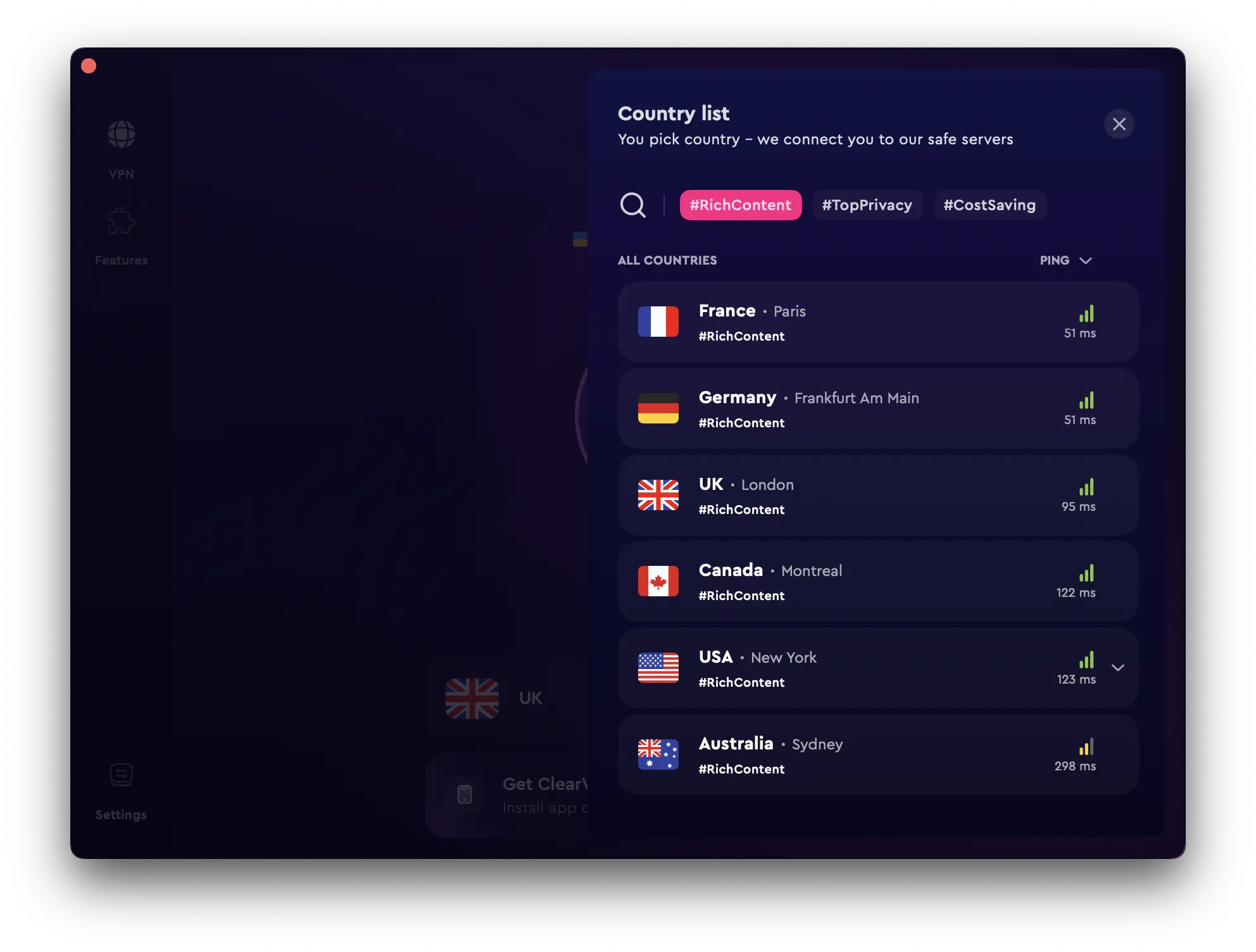In today’s world, where digital footprints can extend far beyond our control, safeguarding online privacy is more crucial than ever. Every time you browse, shop, or stream videos/music online, your data can potentially be intercepted and viewed by unwanted eyes. This is where Virtual Private Networks (VPNs) come into play. Used correctly, they serve as a shield to protect your online activities.
But how exactly do they do that? In this quick guide, we’ll get into the nitty-gritty of how a VPN protects you and your data. Only then will you fully appreciate their value in achieving a worry-free, private online experience.
Let’s jump in!
So how does a VPN protect your privacy?
Now to understand how a VPN protects you, it’s essential first to get a good grasp of how data is transmitted over the internet. When you connect to a network, your device sends data packets (pieces of information) through your Internet Service Provider (ISP). This data then travels through various servers before arriving at its final destination.
Any device connected to the Internet has what’s called an IP address — a unique numerical identifier that enables communication between devices. When you’re online, your IP address is visible to not only the website or service you’re using but also to your ISP and anyone else who may be monitoring network traffic. This is where VPNs come in!
A VPN creates a secure and encrypted connection between your device and the internet by routing all of your data through an external server run by the VPN provider. This means that instead of connecting directly to the websites or services you’re accessing, your data goes through a tunnel created by the VPN, making it nearly impossible for others to see what you’re doing online.
While we won’t go into the technical details of how data encryption works, just know that it scrambles your data in a way that only your device and the VPN server can understand. This makes it incredibly difficult for hackers or other third parties to intercept and decipher your data.
Below, we’ll go over a few specific scenarios where VPN protection can come in handy:
How does a VPN protect you from hackers?
Hackers are always on the lookout for vulnerabilities in networks and devices to gain access to sensitive data. Anything from your personal information to financial details can be at risk. But with the added layer of encryption provided by a VPN, hackers won’t be able to make sense of your data even if they manage to intercept it.
For example, let’s say that a hacker has infected your computer with malware that allows them to monitor your internet activity. When you connect to a VPN, the encrypted connection will prevent the hacker from seeing what websites you’re visiting or any information you’re transmitting. While he might be able to steal the data, it will be useless to him without the encryption key.
Note that the encryption which premium VPNs use is no ordinary encryption. It’s often AES-256 — the same encryption used by government agencies and military organizations. This means that it would take an extraordinary amount of computing power to break it, making your data virtually impenetrable.
How does a VPN protect you on public Wi-Fi?
Another common scenario where a VPN can protect you is when using public Wi-Fi. Public Wi-Fi networks are usually unsecured, meaning that anyone with the right tools and knowledge can intercept your data, including login credentials, credit card numbers, and other sensitive information.
Using a VPN on public Wi-Fi will create a secure tunnel between your device and the internet, preventing any potential snoopers from accessing your data. This way, even if someone manages to intercept your data while connected to the same network, they won’t be able to decipher it due to the encryption provided by the VPN.
The good news is that VPNs these days have become more accessible and user-friendly, making it easier for individuals to protect their privacy when using public Wi-Fi. To give you an idea of just easy it is, we’ll go over the steps on how you can accomplish this with ClearVPN — a user-friendly and reliable VPN service provider:
- Download and install the ClearVPN app on your device. The app supports all major operating systems, including Windows, Mac, iOS, and Android.
- Open the app and sign up for an account.
- Log in and click on the circular “quick-connect” button at the center of the screen.

- The app will automatically detect your location and connect you to the nearest and fastest server available.
And just like that, you’re connected to a secure and encrypted internet connection! The app interface will vary depending on the VPN service provider you choose, but the general steps should be similar.
How a VPN protects against censorship?
In some countries, there are strict regulations and censorship in place that limit internet freedom. Without a VPN, your activity may be monitored and restricted by these authorities. But with a VPN, you can bypass these restrictions by connecting to a server in another country where the internet is not censored.
For example, if you’re traveling to China where websites such as Google and Facebook are blocked, using a VPN will allow you to connect to a server in another country where these sites are accessible. This way, you can browse the internet freely without worrying about government restrictions.
To give you an idea, here’s how you can use ClearVPN to bypass censorship:
- Assuming that you’re already logged in to the ClearVPN app, click/tap on the “Optimal Location” option.
- Next, select a server from the country list where the content you want to access is not censored. Countries like the US, UK, and Canada are popular choices as they are top on the list of countries with the least amount of censorship.

- The ClearVPN app will automatically connect you to the selected server, and you can now access any content as if you were physically located in that country.
With a VPN, not only are your data and privacy protected, but you also have the freedom to access information from around the globe without limitations.
Other things VPN protects you from
At this point, you might be wondering what else can a VPN protect you from? You may not be too concerned about hackers or censorship, but there are still other threats that VPNs can provide protection from.
Well, here are a few more scenarios where having a VPN can come in handy:
- Protection against targeted ads and tracking: With a VPN, your online activities are hidden from third parties, including advertisers who use your data to target you with personalized ads.
- Protection against bandwidth throttling: Some internet service providers deliberately slow down your internet connection when they detect that you’re streaming or downloading large files. A VPN can prevent this by encrypting your traffic and making it harder for ISPs to detect what you’re doing online.
- Protection against device tracking: Did you know that your IP address can reveal information about your device and location? A VPN can mask your IP address, making it harder for trackers to identify you and your device.
Is VPN protection worth it?
Now that we’ve covered the different ways a VPN can protect you, you might be wondering if it’s worth investing in. Ultimately, the decision is up to you and your specific needs. If you frequently use public Wi-Fi, travel to countries with strict internet censorship, or simply value your online privacy and security, then a VPN is definitely worth considering.
There are plenty of reliable and affordable VPN services out there that offer various features such as multiple device connections, unlimited bandwidth, and fast speeds. Some even offer free trials or money-back guarantees so that you can test them out before committing.
A word of caution — avoid so-called free VPNs as they often come with hidden costs, such as selling your data to third parties or compromising your security. In a time where cyber threats are rampant, investing in a reputable VPN service may indeed be the best decision you can make for your online privacy.
FAQs
Is using a VPN illegal?
Using a VPN is generally legal in most countries, particularly for privacy protection and bypassing geo-restrictions. However, it’s essential to remember that illegal activities remain punishable regardless of VPN use. Always check local laws, as some countries do have stringent regulations on VPN usage.
What does a VPN not protect me from?
A VPN does not protect you from viruses, malware, or phishing attacks. It also doesn’t make you completely anonymous online, and it can’t prevent data logging by websites you willingly share information with. Always use additional security measures like antivirus software and be cautious about the information you’re sharing online.
Can a VPN owner see your history?
The answer depends on whether the VPN service keeps logs of your online activities. Here’s where it becomes crucial to choose a reputable VPN that has a clear no-logging policy. This way, even if authorities request user data from the VPN provider, there will be nothing to share. Look for VPN services that have been audited or have transparent privacy policies to ensure your data remains confidential.
